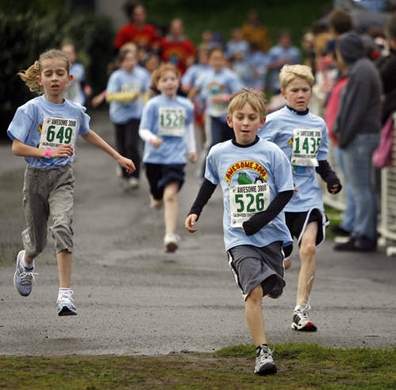Filling slots or tapping passion?
 Most churches I know have a great volunteer challenge. It takes a high percentage of volunteer workers in order for everyone to be served well within a given structure. But, season-by-season, those workers are hard to come by, and sometimes even harder to keep.
Most churches I know have a great volunteer challenge. It takes a high percentage of volunteer workers in order for everyone to be served well within a given structure. But, season-by-season, those workers are hard to come by, and sometimes even harder to keep.
Most mature believers will step up to the plate and fill a slot that needs to be filled—for a while. But when push comes to shove, they’ll look for a gracious way out. I’ve even known people who leave the church altogether because they served too long in a role they had no passion for, and didn’t know how to say they were done—so they simply left.
John Fehlen is a friend of mine who pastors the effective and exploding West Salem Foursquare Church. Earlier today he tweeted the following question: “Awesome 3000: a study in volunteerism. How come churches can’t find volunteers for children’s ministry but a race attracts hundreds?”
The Awesome 3000 is a huge annual run in his town of Salem Oregon. Hundreds of adults come out to volunteer and thousands to celebrate as over 3,000 kids participate in this non-profit fundraising event for local schools.
Anyways, I couldn’t stop thinking about John’s question today. But my mind wandered from the kids ministry volunteer question to why non-profit runs that take place all over the country attract so many participants in the first place, and how anyone who works with volunteers can learn from this:
A Calling: Let’s call it passion—something that really floats your boat. Some people just like to run. Give them any opportunity to do so and they will sign up. But many didn’t figure that out until a friend invited them into the activity. You usually need to be introduced to something to catch the ‘bug’ and find the passion. Most volunteers don’t just ‘find’ their calling, they have to be introduced and invited into it.
A Community: Running solo is for the few, the proud, the…(fill in the blank). What people really love is carbo-loading before the race; running with others; knowing there are people cheering them on; looking forward to the after party—that is what attracts even non-runners to this thing. It’s also interesting that most long runs have ‘mini-versions’ of the race too so even more folks can be included into the community—and for every runner there are usually multiple people providing logistical support, encouragement, and participating in the community in other ways. Volunteers, too, can’t operate in a vacuum, but are seeking a real community to join.
A Cause: In many of these runs there is more than just running going on. Whether it is raising money or raising awareness, there is usually some focus for which the race exists. Another example: I’m never going to buy a candy bar from someone simply selling sweets door-to-door, but when it is tied to a cause that I understand and believe in, I’m at least tempted to do so (even if I’m on a diet). What is the clear cause our volunteers know they are joining?
A Competition: The thrill of victory; the agony of defeat—It may sound unspiritual, but I’m convinced that if we could clearly articulate what we are fighting for, people with a competitive spirit would have an inner drive to step up to the plate to help bring the win.
A Completion: Even in a Triathlon, there needs to be a finish line. I’m not talking about having a defined season of service (an end date to your volunteering), but about understanding the definition of completion in your ministry. Andy Stanley says that every ministry needs to establish what a win looks like, because people need to be able to determine whether they are winning or how to adjust if they are loosing.
A Celebration: At the end of a race there is usually a massive celebration. It’s the afterglow that makes it all worth while; the stories of how you felt when you hit the wall, the play-by-play of the little and big details that made running satisfying; the hours on the couch with your friends while your body recoups. This celebration is the culmination of all of the other elements combined. Volunteers want to be able to regularly celebrate with one another for the important and impacting things they are accomplishing together.
For a first hand account of the kind of experience I’m talking about (that, frankly, I can’t provide) you might want to read this ‘running’ post from a guy I met in Wisconsin a few weeks ago.
But lets get back to John’s original question: Why will hundreds of volunteers show up to help with a kids race but not sign up to help in kids ministry? It’s not just about their personal calling, community, cause, competition, or completion (though I think it is part of it), but it’s about helping the kids discover these things, too. When you volunteer for an epic event that engages kid’s imaginations and impacts the way they see the world, you know it was worth it.
Does our children’s ministry engage the passion of both the adults and the kids, or is it mostly about asking adults to fill necessary slots and about providing obligatory care and teaching for kids in the church without fully contending for that which is epic and passionate and impacting and memorable? I think the answer to this could make a big difference with our volunteer situation.
